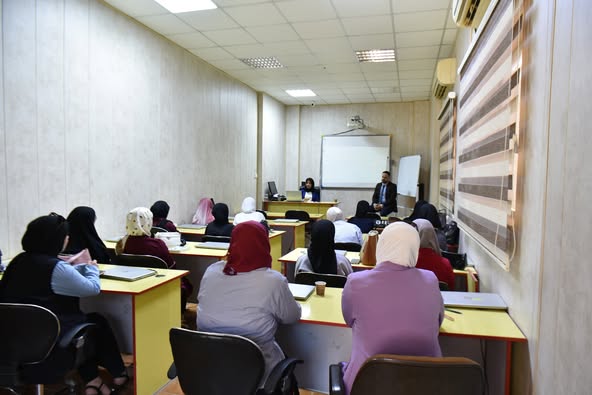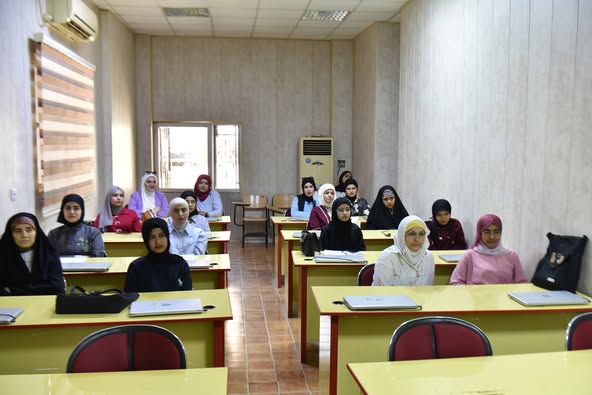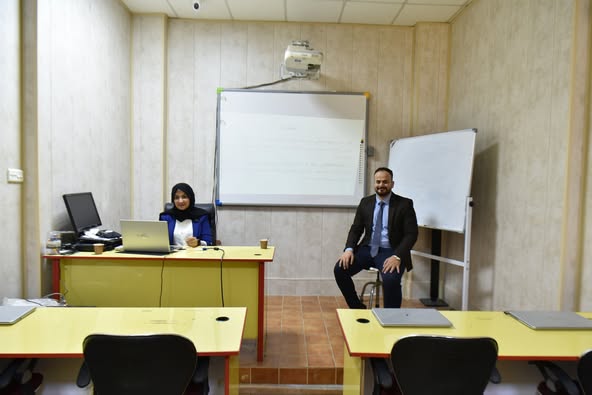Under the patronage of the Dean of the College of Science for Women, Professor Dr. Sameera Naji Khdim, the Rehabilitation and Employment Unit organized a workshop entitled “The Use of Artificial Intelligence in Scientific Research.” The workshop was presented by the Assistant Dean for Scientific Affairs, Assistant Professor Dr. Yousra Abdul Sahib, Dr. Safaa Sami Abdul Jabbar, and Mr. Zaid Ziyad Adnan.
The workshop covered a range of theoretical and practical foundations of artificial intelligence (AI) and its role in advancing scientific research. Discussions included how researchers are increasingly relying on AI technologies to analyze large datasets, uncover hidden patterns and meanings, and accelerate processes such as scientific modeling and simulation. Additionally, the workshop addressed widely-used AI tools in areas such as academic writing, literature review, topic suggestion, and more precise analysis of experimental results compared to traditional methods.
Emphasis was placed on practical applications that researchers and students can utilize in their work, particularly tools based on generative AI and natural language processing techniques. These tools enable users to produce high-quality scientific content, interact with data in natural language, and automate repetitive steps in research preparation. The ethical implications of using AI were also discussed, highlighting the importance of ensuring these technologies serve as a complement to human effort rather than a replacement. The workshop stressed the need for accuracy and integrity in scientific documentation when using AI-generated outputs.
The session witnessed significant engagement from the audience, with numerous questions and inquiries raised about training opportunities, the accessibility of AI tools—whether free or subscription-based—and the extent to which AI-driven practices are accepted within the research community.
In conclusion, the workshop underscored the importance of keeping pace with scientific and technological advancements. Such events are considered vital steps in empowering female researchers and students with contemporary tools and in supporting the development of a robust academic future, aimed at enhancing the research environment and promoting a culture of modern scientific inquiry based on advanced technologies.











